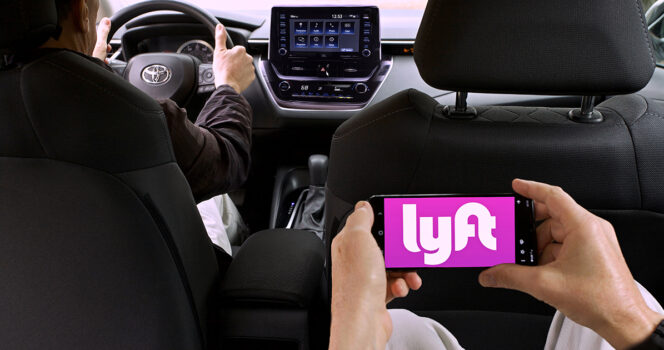Rideshare Controversy: Plus-Sized Rapper Files Lawsuit After Being Denied a Ride
A rising rapper has taken legal action against Lyft and one of its drivers after she was allegedly refused a ride due to her size. Dajua Blanding, known in the music world as Dank Demoss, claims that the driver denied her service, stating that she was “too big to fit” in his vehicle.
What Led to the Lawsuit?
The incident unfolded on January 18 when Blanding requested a Lyft to take her to a family gathering for a football watch party. Expecting a routine ride, she was met with an unexpected rejection when the driver arrived outside her home in the Detroit area.
In a video shared by Blanding on TikTok, a discussion between her and the driver—who remains unnamed in legal documents—shows him explaining why he couldn’t give her a ride.
“What makes you think I can’t fit in this car?” she is heard asking the driver, who was operating a Honda Civic. While some of his words are unclear, he eventually states, “To be more specific, my tires are really worn out.”
Blanding challenges the reasoning, questioning what her size has to do with the car’s tires. The driver then gestures toward the back seat and says, “There’s no space for you.”
After a brief exchange, the driver cancels the ride and leaves, leaving Blanding unable to attend the event. Feeling humiliated and discriminated against, she decided to take legal action.
Filing a Lawsuit Over Alleged Discrimination
Less than two weeks later, on January 27, Blanding filed a lawsuit against both Lyft and the driver, alleging that her civil rights were violated. According to legal documents obtained by People, she claims the driver refused service solely based on her weight.
The filing also states that as she approached the car, the driver locked the doors and attempted to drive away before engaging in conversation. Additionally, he allegedly told her to request a Lyft XL— a service offering larger vehicles that accommodate up to six passengers.
However, Blanding refuted the suggestion, insisting she has never needed to book an XL vehicle before.
A Debate Over Discrimination or Practicality
The case has sparked mixed reactions, with opinions divided on whether the driver acted within reason or if his decision was discriminatory.
Blanding’s attorney, John Marko, compared the alleged discrimination to other forms of bias. “Denying someone transportation based on their weight is no different than denying them service based on race or religion,” he said in a statement to People.
Another member of her legal team, Zach Runyan, emphasized the potential dangers of such a refusal. “Leaving someone stranded, especially in a situation where they may need transportation for safety reasons, is not only illegal but also reckless,” he argued.
Public Reaction: Was the Driver Justified?
The controversy has sparked debates across social media, with many users expressing strong opinions. Some believe the driver had valid safety concerns, while others argue that his refusal was unfair.
One Facebook user commented on Blanding’s post, writing, “That car was clearly too small. A driver has every right to refuse if it’s a safety issue—seatbelts, weight distribution, and vehicle strain all matter.”
Another user supported the driver’s right to decline: “This wasn’t discrimination. Cars have weight limits. It’s about safety, not bias.”
Others, however, sided with Blanding. “If this was about weight, it’s unacceptable. Lyft drivers can’t pick and choose who they want to serve based on body size,” one person argued.
A self-described plus-sized woman chimed in with a different perspective, stating, “As a BBW myself, I always order an XL ride. Not because I have to, but because I prefer the extra space. If you know you’ll be more comfortable in a bigger car, why not choose that option?”
Seeking Compensation for Emotional Distress
Blanding’s lawsuit is seeking financial compensation for emotional distress, humiliation, embarrassment, and mental anguish caused by the incident. She also demands coverage of her legal fees and court costs.
In response to the lawsuit, Lyft released a statement reaffirming its commitment to inclusivity. “Lyft strongly condemns all forms of discrimination. We strive to maintain a community built on respect and mutual kindness. Our policies explicitly prohibit any form of harassment or discrimination,” the company stated.
As the legal battle unfolds, the case could set a precedent for how rideshare companies address weight discrimination claims in the future.
What Do You Think?
Was the driver justified in refusing the ride, or should Lyft take responsibility for what happened? Share your thoughts, and don’t forget to pass this story along to hear what others have to say!










